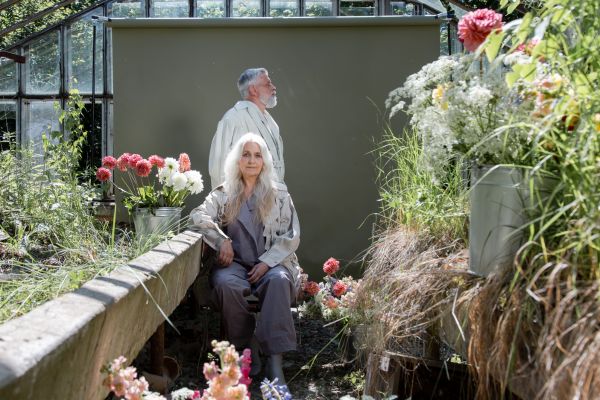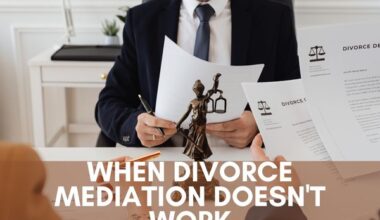Let us embark on a journey to unveil the mysteries behind the question, “why do couples die close together?” and explore the indomitable power of love that binds even in the face of mortality.
Love is a bond that transcends time, connecting two souls in an inexplicable harmony. Throughout life’s journey, couples navigate the ups and downs together, sharing cherished moments and creating a tapestry of memories. But what happens when fate intervenes and one partner’s life comes to an end?
This inexplicable connection has captivated researchers and tugged at the heartstrings of many. In this article, we delve deep into the intricacies of this emotional enigma to understand why some couples die close together, examining the profound psychological ties between partners and the factors that contribute to this extraordinary occurrence.
Why Do Couples Die Close Together
The Widowhood Effect is a phenomenon observed in numerous studies, where the death of one spouse appears to trigger a higher mortality risk for the surviving partner. This effect seems to be particularly prominent in elderly couples who have spent a considerable portion of their lives together.
Researchers have been investigating this intriguing connection for decades, and while it has been observed worldwide, its mechanisms remain complex and multifaceted.
1. Long-Term Bond
Couples who have been together for many years often share an incredibly strong bond. When one partner falls seriously ill or passes away, the other might experience profound grief, leading to a decline in their own health.
2. Emotional Connection
The emotional connection between partners can be so strong that if one person becomes seriously ill or passes away, the other might lose the will to live, resulting in their own health deteriorating rapidly.
3. Shared Lifestyle
Couples who have spent decades together often share similar lifestyles, including dietary habits, exercise routines, and daily activities. If one partner faces health issues, the other might also be at risk due to these shared habits.
4. Depression and Loneliness
After the loss of a partner, feelings of loneliness and depression can become overwhelming. This emotional strain can have a negative impact on physical health and may exacerbate existing medical conditions.
5. Caregiver Stress
When one partner becomes seriously ill, the other might take on the role of a caregiver. This caregiving responsibility can be physically and emotionally draining, potentially leading to health issues for the caregiver as well.
6. Age-Related Health Decline
Elderly couples often face a range of age-related health challenges. If one partner’s health starts to deteriorate, the other might be similarly vulnerable due to their shared life stage.
7. Heartbreak-Induced Stress
The emotional stress of losing a loved one can trigger physiological responses in the body, including an increased risk of heart-related issues due to the surge of stress hormones.
8. Reduced Will to Live
After losing a lifelong partner, some individuals might lose their motivation to continue living, especially if they feel that life no longer holds the same meaning without their loved one.
9. Codependency
In some cases, couples might develop a strong sense of codependency, where they rely heavily on each other for emotional and practical support. If one partner is lost, the other might struggle to cope effectively.
10. Shared Medical Conditions
Couples might share certain genetic predispositions or environmental factors that contribute to specific health conditions. If one partner is diagnosed with such a condition, the likelihood of the other partner also being affected could be higher.
Factors Influencing Widowhood Effect
1. Duration of Marriage
The duration of a couple’s marriage appears to play a significant role in the Widowhood Effect. Couples who have spent more years together tend to exhibit a stronger connection, which can lead to more pronounced effects when one spouse passes away.
2. Age and Health of the Couple
The age and health of both partners also influence the Widowhood Effect. Older couples and those with pre-existing health conditions may be more vulnerable to the impact of losing a spouse.
3. Social and Emotional Support
The presence of a strong support system, including family and friends, can influence how a surviving partner copes with grief and loss, potentially mitigating the Widowhood Effect.
4. Grief and Coping Mechanisms
The grieving process and coping mechanisms vary from person to person. Understanding how individuals deal with grief can provide valuable insights into the Widowhood Effect’s intensity.
Theories Behind Couples Dying Close Together
1. Bereavement-Induced Death
The stress and emotional trauma caused by the loss of a spouse could potentially lead to severe health consequences, accelerating the mortality risk for the surviving partner.
2. Broken Heart Syndrome
The intense emotional pain experienced after losing a spouse may trigger a physiological response known as Broken Heart Syndrome, which can have severe consequences on a person’s health.
3. Synchrony in Health and Death
Couples who have spent a lifetime together may develop synchrony in health patterns. When one partner’s health deteriorates, it may affect the other partner’s well-being as well.
Coping with Grief and Loss
Coping with grief and loss is a deeply personal and challenging process. It’s important to remember that there is no “right” way to grieve, and everyone experiences and manages their emotions differently. Here are some general strategies that can help you cope with grief and loss:
1. Allow Yourself to Feel: Give yourself permission to experience a wide range of emotions, including sadness, anger, guilt, and confusion. It’s normal to have mixed feelings during the grieving process.
2. Seek Support: Reach out to friends, family members, or a support group. Talking about your feelings and sharing your memories can help you feel less isolated and provide a sense of connection.
3. Express Yourself: Find healthy outlets for your emotions, such as writing in a journal, creating art, or engaging in activities that help you express your thoughts and feelings.
4. Take Care of Yourself: Grief can take a toll on your physical health, so prioritize self-care. Eat well, exercise, and get enough sleep to support your overall well-being.
5. Ask for Help: Don’t hesitate to ask for help when you need it. Whether it’s practical assistance or emotional support, reaching out to others can make a big difference.
6. Remember the Good Times: Celebrate the positive memories and moments you shared with your loved one. Cherishing these memories can help balance the pain of loss.
7. Create Rituals: Establishing rituals or traditions in honor of your loved one can provide a sense of connection and comfort. This could be anything from lighting a candle to visiting a special place.
8. Accept the Process: Grief doesn’t have a set timeline. Be patient with yourself and allow yourself to grieve at your own pace.
9. Professional Help: If your grief feels overwhelming and begins to interfere with your daily life, consider seeking the help of a mental health professional or counselor who specializes in grief and loss.
10. Stay Open to Healing: Over time, the intensity of your grief may lessen, but that doesn’t mean you’ll forget your loved one. Healing is a gradual process, and it’s possible to find a way to move forward while still holding them in your heart.
Conclusion
The Widowhood Effect sheds light on the profound emotional connection between couples and the impact of losing a spouse on the surviving partner. It serves as a poignant reminder of the power of love and the importance of support during times of grief. By understanding the factors influencing this phenomenon and implementing coping strategies, we can help alleviate its impact on individuals and foster healthier grieving processes.
FAQs
1. Is the Widowhood Effect universal?
The Widowhood Effect has been observed in various cultures and countries, making it a widely recognized phenomenon.
2. Can the Widowhood Effect be prevented?
While it may not be entirely preventable, strong support networks and coping mechanisms can help mitigate its impact.
3. Does the Widowhood Effect affect both men and women equally?
Research suggests that the Widowhood Effect affects men and women differently, with some variations in its intensity.
4. Are there any health implications of the Widowhood Effect?
Yes, the Widowhood Effect can lead to an increased risk of health issues for the surviving partner due to the stress and grief experienced.
5. Can the Widowhood Effect occur in younger couples?
While it is more commonly observed in older couples, the Widowhood Effect can occur in younger couples as well, especially if they have spent a significant amount of time together.








